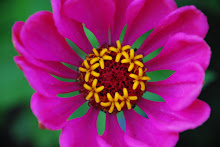Our average last frost in Portland is March 15th and that is just 10 short days away! It is a good date to keep in mind when garden planning and planting. Light frost occurs at 36 degrees, frost occurs at 32 degrees and most annual vegetables and herbs are not able to survive temperatures that low. Please keep in mind the March 15th date is an AVERAGE based on previous years. We could still get an overnight frost. Also remember it is not officially spring until March 21st and March weather is wildly unpredictable with rain, hail, wind, and fluctuating temperatures averaging highs in the 50/60s and lows in the 40s/30s.
For optimal planting conditions not only do day temperatures need to rise, the soil needs to warm, and dry out some. In wet cold soil potato tubers will rot, seeds won’t germinate and transplants will struggle to grow. As March proceeds into April we generally have more ideal planting conditions.
In March think cool season crops. It is way to early for summer heat lovers like tomatoes, cucumbers, squash, basil, etc--you will plant these crops after May 15th.
Working in wet gardens causes soil compaction that impacts plant health. I’ve had my raised beds "lasagna mulched," planted with crimson clover, and covered with a frost blanket that is keeping the soil warm and drier through the rainy season. Sometime soon I will prepare my raised beds by removing the frost blanket, hoeing the fall-planted crimson clover cover crop, leaving greens on soil, sprinkling on an organic granular fertilizer, adding a fresh layer of compost, and then replacing the frost blankets. By mid-end of March when I assess the weather the raised beds will be prepped and ready for planting.

Cool Season Crops to Plant in March:
Asparagus-from crowns
Garlic-from cloves
Horseradish-from roots
Jerusalem Artichokes/Sunchokes-from tubers
Potatoes-from seed potato tubers
Onions-from bulbs or bunches
Shallots-from cloves
Direct seed in the garden with protection of a frost blanket, cloche, cold frame or plant transplants directly into the garden
Arugula
Asian Greens
Escarole & Endive
Florence Fennel
Kale
Lettuce
Leeks-transplants are best
Mache
Mesclun Mix
Mustard Greens
Peas
Radicchio
Radish-direct seed is best
Scallions
Spinach
Swiss Chard
Turnips-direct seed is best
I would wait a little later in March to see how the weather goes for planting: broccoli, cabbage, cauliflower. Or if you want to plant these now from transplants into the garden be sure to keep a warming frost blanket handy or use some other kind of protection from a cloche, cold frame or low tunnel. I would also hold off until late March into April for direct-seeding beets and carrots. Make sure the soil has warmed up or their seeds won't germinate!
March is a great time to get started with your herb garden. Cool-loving annual herbs like chervil and cilantro should be planted now from seed or transplants. Biennial parsley can be planted now. Additionally perennial herbs like chives, lavender, oregano, rosemary, sage, and thyme can all be planted from transplants in March. This month is an ideal time to divide and transplant perennial herbs grown in containers like chives, lemon balm, lovage, and mint.
Late winter into early spring is the ideal time to plant small fruit and fruit trees in your garden. This time of year you will also get the best selection at nurseries. Consider planting a dwarf or columnar fruit tree such as apple, Asian pear, pear, cherry, or plum which all grow excellent in Portland. Fruiting shrubs, canes, and vines include:
Blackberries
Blueberries
Currants
Grapes
Hops
Kiwi
Raspberries
And don’t forget the strawberries!
Spring is right around the corner. Please email me to schedule and in-person or email edible gardening consultation. Happy Planting!
Jolie










No comments:
Post a Comment